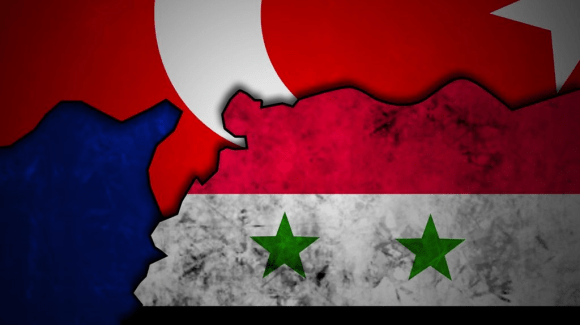Reza Hojjat Shamami told the website of the Strategic Council on Foreign Relations: Information on the aims and reasons for the meeting is not available although holding the event has been made public. But the news of holding the conference under the status quo was released purposefully.
He added: Some field movements in northern Syria indicate the beginning of a new round of tension and in the meantime expansion of the Syrian army’s control of suburbs of Aleppo and Idlib which are now controlled by the Nusra Front and its allied terrorist groups. Last month, the Syrian army made significant advances south of the outskirts of Idlib and took control of some of the towns and villages held by Nusra and their allied armed groups.
According to the Asian affairs expert, some reports suggest that the Syrian army’s military preparations may be aimed at starting a battle on the outskirts of Aleppo and then completing the advance on the southern outskirts of Idlib, which will be crucial in the Syria-related developments.
“Holding the summit under the current situation opens the door to the possibility of resolving these problems, and Syria seems to have sent a strong message to the Turkish authorities about complete withdrawal from Syrian territories and the decision to fight terrorism and restore all lands,” he said.
According to the Asian affairs expert, despite a claim by Reuters that Syrian authorities have announced the possibility of working together against the Kurdish People’s Protection Units in the east of the Euphrates, by the intelligence chiefs of the three countries, Syrian officials have said that they discussed merely about Turkey’s withdrawal from all Syrian territory. There have been no discussion and no mention of the possibility of joint cooperation against the Kurdish People’s Protection Units, Syrian officials said.
However, due to Turkey’s attacks on northeast Syria, separatist Kurds have been persuaded to incline to the Syrian government and accept Russian views in the absence of the United States, and if they are not supported by them, because they have no solid support they are likely to be killed. In the same line, the Syrian government has voiced support for them, which is crucial in resolving the Syrian issue.
Referring to Turkey’s unanimous views with Russia over a ceasefire in the northwestern Syrian region, Hojjat Shamami noted: “Political, defense, security and economic relations between Turkey and Russia have reached their peak in recent years. These meetings will continue to convince Turkey of the threats and will provide the necessary guarantees that no territorial interference from Turkey will take place in Syria.”
The simultaneous announcement of a ceasefire in Idlib, Syria, and Tripoli, Libya shows that the three countries’ talks depend on the type of behavior in Libya, and Turkey’s and Russia’s agreements on Libya determine the status of Idlib, the Asian affairs expert said.
“It seems that Turkey, which has not been able to achieve its stated goals in Syria, is seeking to use its presence in northern Syria and by gaining Russian support on the situation in Libya, give concessions on the situation in Idlib and bring its positions in this respect closer to Russia as Ankara cannot lower its note on Libya and Russia needs Syria’s territorial integrity. Russia in Libya tried not to confront Turkey and to reduce tensions and Turkey do the same in Idlib.
At the same time, Hojjat Shamami termed the creation of solutions to normalize bilateral relations between Syria and Turkey a long and difficult way and said: It seems part of the conference of intelligence chiefs of the three countries was dedicated to coordination of these measures. If tensions rise in Libya, given the similarity of actors in Libya and Syria, it can affect Syria as well.










0 Comments